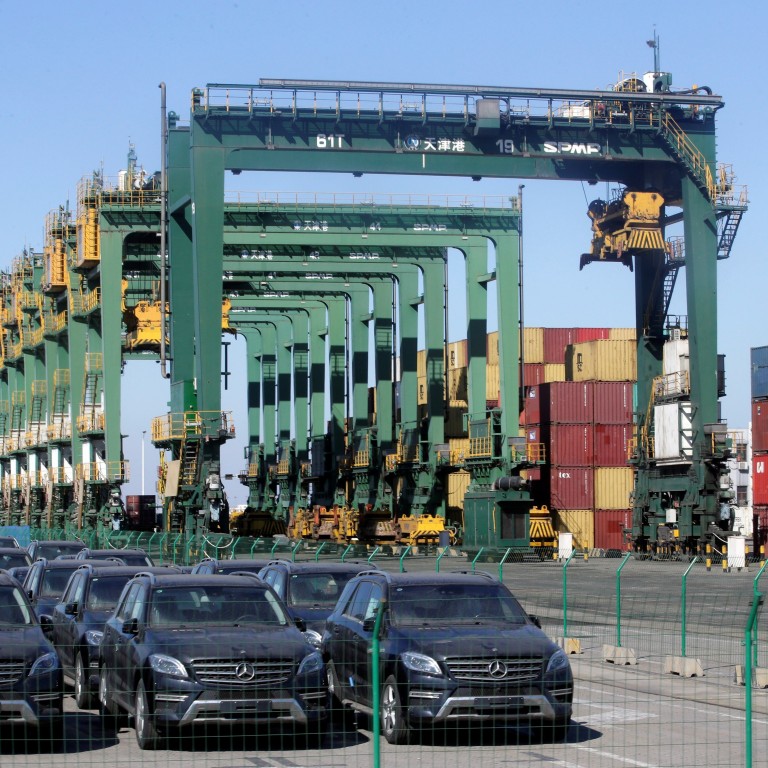
BMW, Mercedes among luxury carmakers to cut prices in mainland China amid weaker demand, lower VAT
- Price cuts of around 2.5 per cent come as Beijing prepares to lower VAT rate on manufacturers from 16 to 13 per cent
- Mercedes-Benz, BMW, Lincoln, Land Rover, Jaguar and Volvo announced that they would lower retail prices on their models
A clutch of luxury car brands including Mercedes-Benz, BMW and Volvo have cut the prices of their vehicles in mainland China after the government announced it would lower value-added tax.
The price reductions, amid lacklustre sales in the first two months of this year, added to evidence that the world’s largest auto market is grappling with weaker consumer demand after nearly three decades of sizzling growth.
Chinese Premier Li Keqiang said last week that Beijing would slash the VAT on manufacturers from 16 per cent to 13 per cent on April 1, a move that will eventually benefit consumers as companies lower the prices of finished goods.
VAT is the tax based on the value a company adds to a finished product or service.
The lower rate would lead to about a 2 per cent price cut on finished cars, according to Cui Dongshu, secretary general of the China Passenger Car Association.
At the weekend, Mercedes-Benz, BMW, Lincoln, Land Rover, Jaguar and Volvo announced that they would lower retail prices on their models.
For example, the cost of a new BMW X5 is now 759,900 yuan (US$116,100), down 20,000 yuan, or 2.6 per cent. A Mercedes C300 model has come down in price by 12,000 yuan, or 2.5 per cent to 474,800 yuan.
“The price cuts are aimed at increasing sales and enhancing brand awareness in the market,” said Cui. “They hope to woo more buyers of their marquees, benefiting from the central government’s incentives.”
The National Development and Reform Commission said in January that spurring vehicle sales would be part of efforts to expand domestic demand.
In January and February, sales of passenger cars in mainland China slumped 9.8 per cent from the same two-month period a year ago to 3.33 million units, the China Automobile Dealers Association reported.
The dip in sales followed a 2.8 per cent year-on-year decline in 2018, which was the first contraction since 1992.
The auto sector has been one of the major driving forces of the fast-growing mainland economy in the past two decades.
China’s economy slowed to the lowest pace since 1990 last year with gross domestic product expanding 6.6 per cent.
Mainland carmakers bore the brunt of the economic slowdown and the tit-for-tat US-China trade war, which dampened consumers’ interest in buying cars.
“Carmakers are still facing a difficult year in 2019 as consumers’ demand for autos may remain weak,” said Ding Haifeng, a consultant with Integrity Financial Consulting. “High-end cars may become a segment that can still see moderate growth.”
Audi, one of the most popular luxury auto brands in China, has yet to announce prices reductions for its vehicles.

